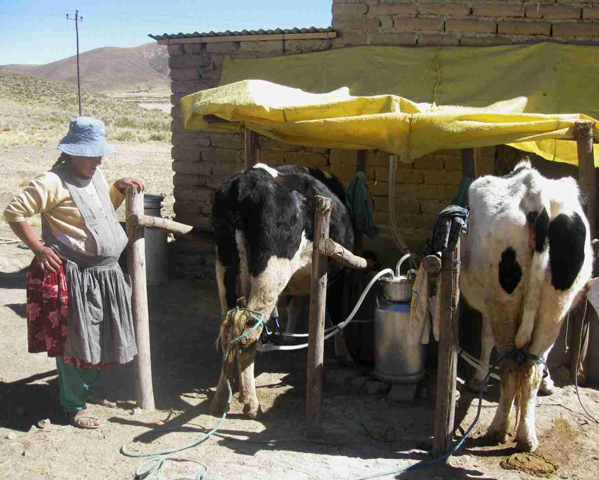

"Seeds" to empower women in Bolivia

"Before I never had time for anything: my whole day was consumed with milking cows." That’s how Elizabeth Calle Romero remembers her early days producing milk and cheese in Challapata Township, in the western Bolivian highlands.
Today, this mother-of-three has halved her milking time and streamlined her business: during the high season, she makes and sells up to 17 cheeses daily in the provincial capital. She has also recently become a local health worker.
Elizabeth is one of the hundreds of women who are benefiting from "Seeds", a joint United Nations programme funded by the MDG Achievement Fund to create economic opportunities for indigenous women living in extreme poverty in Bolivia. The programme provides seed money and grants to women-led businesses and promotes women’s rights and empowerment, part of the MDG-F’s effort to ensure that global development efforts are reaching the poorest people.
“Not only did they train us in the proper handling of milk and cheese, but they also taught us about health and nutrition and showed us how to choose and cook more nutritious foods,” says Elizabeth, who learned to milk cows and make cheese as a child.
Through “Seeds”, Elizabeth received a portable milking machine, which reduced the time she spent with her cows to just 40 minutes. The programme also provided her with a processing facility for making cheese, as well as training in different cheese-making techniques.
To date, “Seeds” has helped nearly 1,300 women from 17 Bolivian municipalities to obtain microcredit loans, allowing them to build up their assets and to start exercising their rights in a country marked by deep social inequalities.
Flora Peñafiel, another programme beneficiary, says she is now more aware of market demands and has learned to make other dairy products, which has helped her increase her profits. Lourdes Torres says that she is more motivated to keep working, and now does so with her husband, who has joined her to help expand her business. Desideria Choque says the support she received through the programme has helped her to “grow and excel.”
“Seeds” was conceived to help rural indigenous women like Elizabeth and her colleagues, who are hardest hit by poverty due to their isolation, marginalization and lack of work opportunities. They have little schooling, marry and have children by age 20 and have a life expectancy of just 51 years. Though they head up 60% of households due to the migration of males, they hold only 1.2 % of the land in their own name.
The joint United Nations programme – a collaboration between the UNDP, UNIDO, FAO, UN Women and the Bolivian government – is part of the MDG-F’s efforts to help Bolivia achieve the Millennium Development Goals of eradicating extreme poverty and promoting equality between the sexes.
Click here to learn more about the "Seeds" programme.